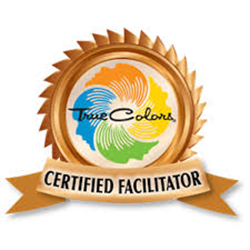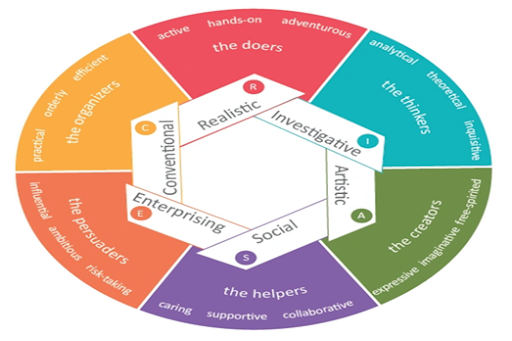In today's competitive job market, standing out among applicants can be a daunting task. Beyond qualifications and experience, employers increasingly value candidates who demonstrate a commitment to their communities and a willingness to go above and beyond. Volunteering provides a unique avenue for individuals to develop crucial skills, expand their networks, and enhance their job readiness.
In this blog, we'll explore how volunteering can significantly impact your career prospects, providing valuable insights, practical tips, and real-life examples along the way.
What Is Job Readiness?
Job readiness is a multifaceted concept encapsulating an individual's readiness to enter and excel within the workforce. It encompasses a diverse range of competencies, both technical and interpersonal, necessary for effectively fulfilling the demands of a particular role or industry.
These competencies include specialized knowledge, practical skills, and personal attributes essential for success in today's dynamic job market. Furthermore, job readiness extends beyond mere qualifications or credentials; it embodies a proactive mindset characterized by a readiness to learn, adapt, and innovate in response to evolving workplace challenges and opportunities.
At its core, job readiness involves possessing the right blend of technical expertise and soft skills required to perform job duties competently and contribute positively to organizational objectives. Technical competencies encompass the specific knowledge and skills relevant to a particular profession or field, ranging from proficiency in software applications to mastery of industry-specific procedures or regulations.
Importance Of Job Readiness In Today's Competitive Market
In today's fiercely competitive job market, the importance of job readiness cannot be overstated. Job readiness serves as a critical determinant of an individual's employability and success in securing meaningful employment opportunities. Employers are increasingly seeking candidates who possess not only the requisite technical skills and qualifications but also the ability to adapt to rapidly changing business landscapes, collaborate effectively with diverse teams, and demonstrate resilience in the face of challenges.
As such, job readiness has become a key differentiator for candidates vying for coveted positions in today's dynamic and fast-paced job market. Furthermore, in an era marked by technological advancements, globalization, and economic uncertainty, job readiness is essential for individuals to navigate and thrive amidst evolving industry trends and workplace dynamics.
By being adequately prepared and equipped with the necessary competencies and attributes, individuals can position themselves as valuable assets to employers, capable of driving innovation, delivering results, and contributing to organizational growth. Moreover, job readiness not only enhances individual employability but also plays a crucial role in driving economic competitiveness and fostering sustainable growth in an increasingly interconnected global economy.
Enhancing Job Readiness Through Service
A journey of service not only enriches communities but also serves as a powerful catalyst for personal and professional growth. By engaging in volunteer work, individuals can enhance their job readiness in myriad ways, equipping themselves with valuable skills, experiences, and attributes sought after by employers in today's competitive job market.
1. Skill Development:
Volunteering serves as a fertile ground for honing a diverse array of skills crucial for success in the workplace. Whether it's fostering effective communication through coordinating with team members or exercising leadership by spearheading community projects, volunteers have ample opportunities to refine their abilities.
From problem-solving in fast-paced environments to mastering time management while juggling multiple tasks, the hands-on nature of volunteer work cultivates invaluable competencies that translate seamlessly into professional settings.
As volunteers immerse themselves in various roles and responsibilities, they not only acquire practical expertise but also learn to adapt to diverse challenges and collaborate effectively with individuals from different backgrounds. These experiences not only bolster their confidence but also demonstrate to potential employers their capacity to thrive in dynamic work environments, making them highly desirable candidates poised for success.
2. Practical Experience:
Volunteering offers a unique avenue for individuals to gain practical experience across a spectrum of activities and industries. Whether working in community development, event planning, or healthcare assistance, volunteers engage in hands-on tasks that provide invaluable insights and skills directly applicable to the professional realm.
This real-world exposure allows individuals to familiarize themselves with industry-specific practices, challenges, and best practices, laying a solid foundation for future endeavors. Moreover, volunteering provides individuals with opportunities to test their skills and interests in various fields, helping them make informed decisions about their career paths.
Through firsthand experience, volunteers gain a deeper understanding of their strengths, passions, and areas for growth, empowering them to navigate their professional journey with clarity and purpose. Ultimately, the practical experience gained through volunteering equips individuals with the confidence and competence needed to excel in their chosen careers.
3. Networking Opportunities:
Volunteering opens doors to expansive networking opportunities, enabling individuals to forge connections with a diverse array of professionals, mentors, and like-minded individuals. Whether collaborating with fellow volunteers on a community project or engaging with organizational leaders during events, volunteers have the chance to expand their professional circles and establish meaningful relationships.
These connections can prove invaluable in the job search process, providing insights into industry trends, job openings, and potential career pathways. Furthermore, volunteering offers a fertile ground for mentorship and guidance, as seasoned professionals often serve as mentors or advisors to volunteers.
Through these relationships, volunteers can gain valuable advice, support, and career guidance, accelerating their professional growth and development. By actively engaging in networking opportunities through volunteering, individuals can cultivate a robust professional network that not only enhances their job readiness but also opens doors to new opportunities and collaborations in the future.
4. Demonstrated Commitment:
Volunteering serves as a powerful testament to an individual's commitment to making a positive impact and contributing to the betterment of society. By dedicating their time and energy to volunteer causes without the expectation of financial gain, individuals demonstrate their genuine passion, altruism, and sense of responsibility towards their communities.
This dedication to service speaks volumes about a person's character, work ethic, and values, qualities that are highly valued by employers seeking candidates who are not only skilled but also socially conscious and empathetic.
Moreover, the commitment demonstrated through volunteering extends beyond the act itself, as it often involves overcoming challenges, persevering through setbacks, and staying dedicated to the cause despite obstacles. This resilience and determination showcased through volunteer work underscore an individual's capacity to handle pressure, navigate adversity, and remain steadfast in pursuit of their goals.
5. Addressing Resume Gaps:
Volunteering presents a valuable opportunity for individuals to bridge resume gaps and enhance their employability, particularly during periods of career transitions or temporary unemployment. By engaging in volunteer work, individuals can fill gaps in their employment history with meaningful experiences that demonstrate ongoing engagement, skill development, and contribution to the community.
This proactive approach to addressing resume gaps not only showcases initiative and a willingness to stay active but also highlights the diverse skills and experiences gained through volunteer service.
Whether gaining relevant industry experience, acquiring new skills, or demonstrating commitment to a particular cause or field, volunteer work can bolster a candidate's qualifications and appeal to potential employers.
6. Exploration of Interests:
Volunteering offers a rich and diverse landscape for individuals to explore their interests, passions, and career aspirations. Whether it's lending a hand in environmental conservation efforts, working with youth in educational programs, or assisting in healthcare initiatives, volunteer opportunities abound across a wide spectrum of fields and causes.
Through active participation in volunteer work, individuals can gain first hand exposure to different industries, roles, and organizational cultures, allowing them to assess their compatibility with various career paths.
Moreover, volunteering provides a low-risk environment for individuals to experiment with new interests or hobbies, test out different roles, and discover hidden talents or areas of expertise. By immersing themselves in volunteer activities that align with their interests, individuals can gain clarity and insight into their passions, values, and professional goals.
Conclusion
Volunteering offers a myriad of benefits that extend far beyond altruism. By engaging in volunteer work, individuals can develop essential skills, expand their networks, and demonstrate their commitment to social responsibility – all of which are integral to enhancing job readiness and career prospects. Whether you're a recent graduate looking to gain experience, a seasoned professional seeking to make a career transition, or someone simply eager to give back to your community, volunteering provides a valuable pathway to professional growth and personal fulfillment.
FAQs
1. How can I find volunteering opportunities that align with my skills and interests?
Explore online platforms such as VolunteerMatch or Idealist, which connect volunteers with organizations based on their skills and interests. Additionally, reach out to local nonprofits, community centers, and religious institutions to inquire about volunteer opportunities in your area.
2. I'm currently employed full-time. How can I balance volunteering with my work schedule?
Consider volunteering during evenings, weekends, or holidays to accommodate your work schedule. Many organizations offer flexible volunteering options, allowing individuals to contribute their time and skills on their own terms.
3. Will volunteering really make a difference in my job search or career advancement?
Absolutely! Volunteering not only enhances your skill set and expands your network but also demonstrates your commitment to social responsibility and community engagement – qualities that are highly valued by employers.


















